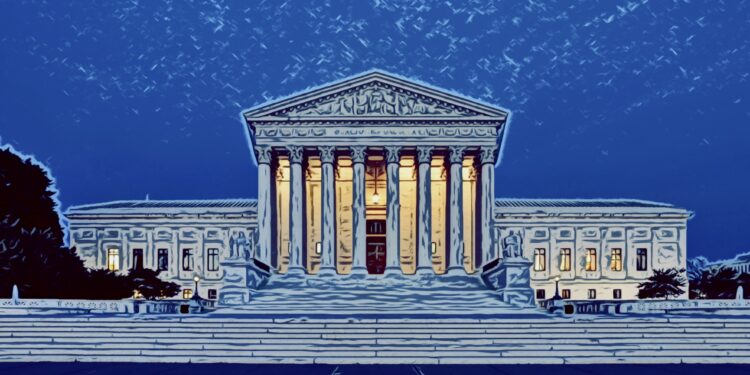Washington, D.C. – On April 24 the United States Supreme Court heard oral arguments in Lac du Flambeau Band v. Coughlin case.
The question before the court was whether the bankruptcy code expresses unequivocally Congress’ intent to abrogate the sovereign immunity of federally-recognized Indian tribes.
This case concerns a lending operation owned by the Lac du Flambeau Band of Lake Superior Chippewa Indians and how bankruptcy code affects collection efforts made by the organization.
Brian Coughlin took out a loan with the Band’s operation, and later filed for bankruptcy.
The U.S. Bankruptcy Code puts an automatic stay on collection efforts once an entity files for bankruptcy.
The Band ignored this automatic stay and continued to attempt to collect the debt despite language in the bankruptcy code, designating that the automatic stay applies to “other foreign or domestic governments.”
Arguments put forth by the Band’s lawyer Pratik Shah, focused on the fact that “tribes” are not specifically mentioned in the code.
One of the authors of the tribe’s Supreme Court briefs is Andrew Adams III. Adams is a Mvskoke citizen and a justice on the Muscogee Creek Nation Supreme Court. In a comment, Adams clarified his role in the trial.
“Just to be clear, I didn’t argue the case before the U.S. Supreme Court on Monday. I’ve represented the Tribe since the beginning, argued the case before the U.S. Court of Appeals for the First Circuit, and was a named author on the Supreme Court briefs. For the hearing this past Monday, I was at the counsel table before the justices but didn’t argue the case,” Adams said.
The trial has not yet reached a verdict. Mvskoke Media will have ongoing coverage of this developing story.





